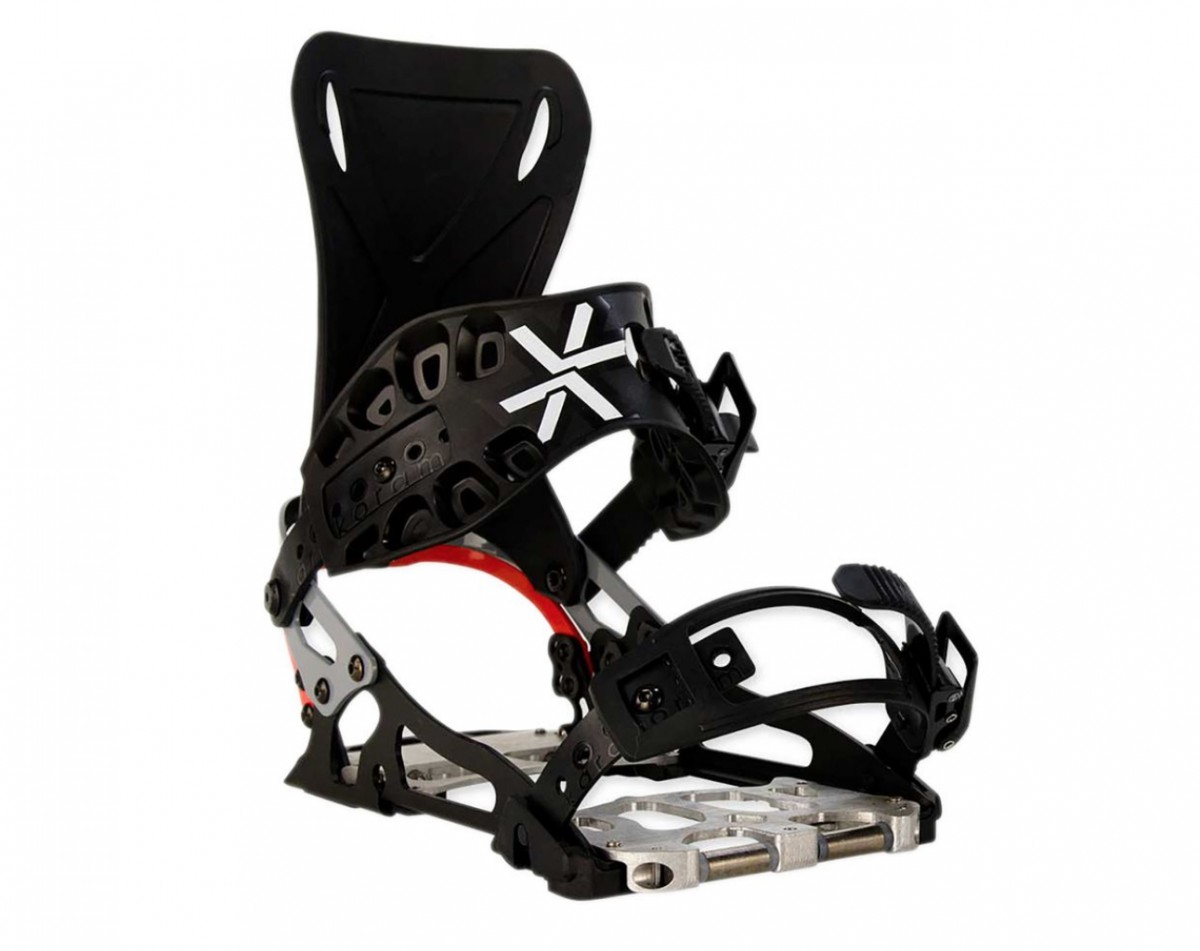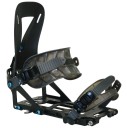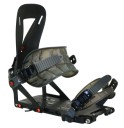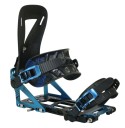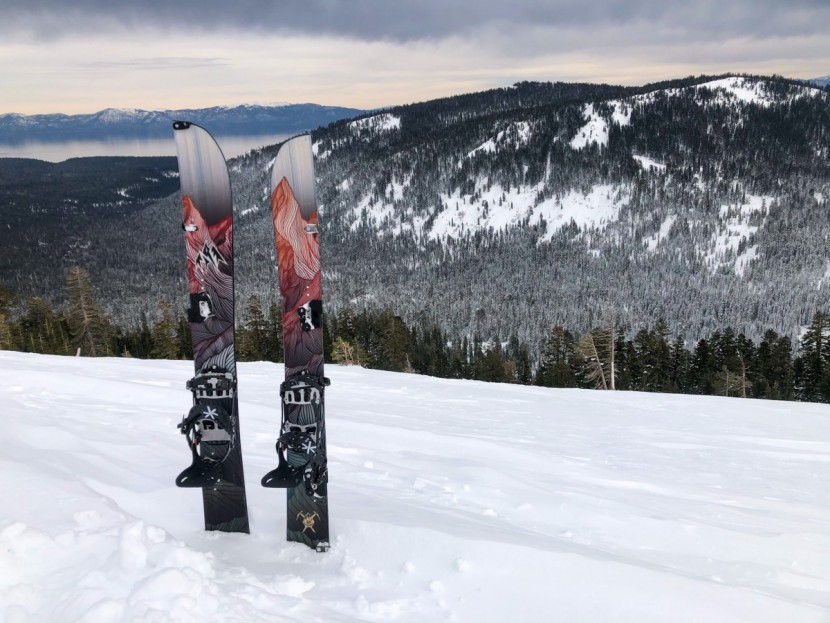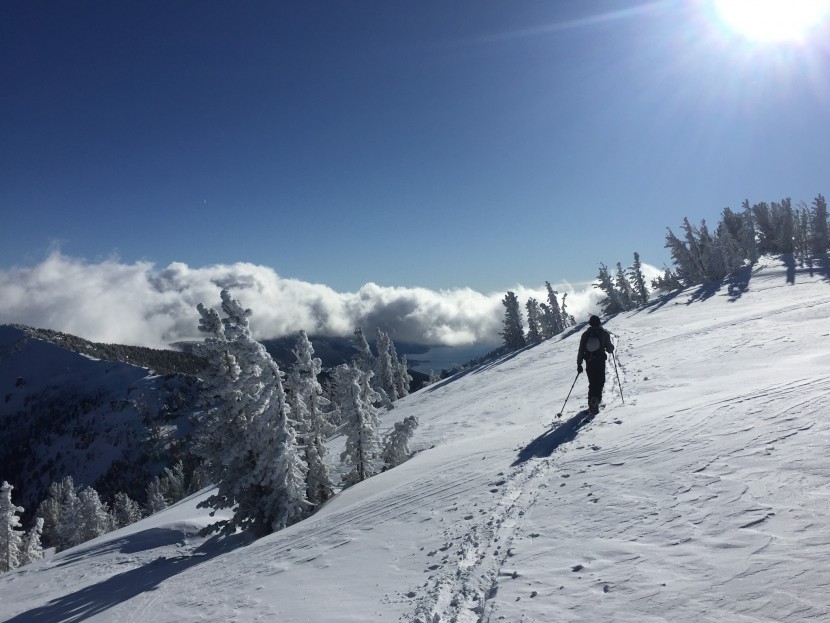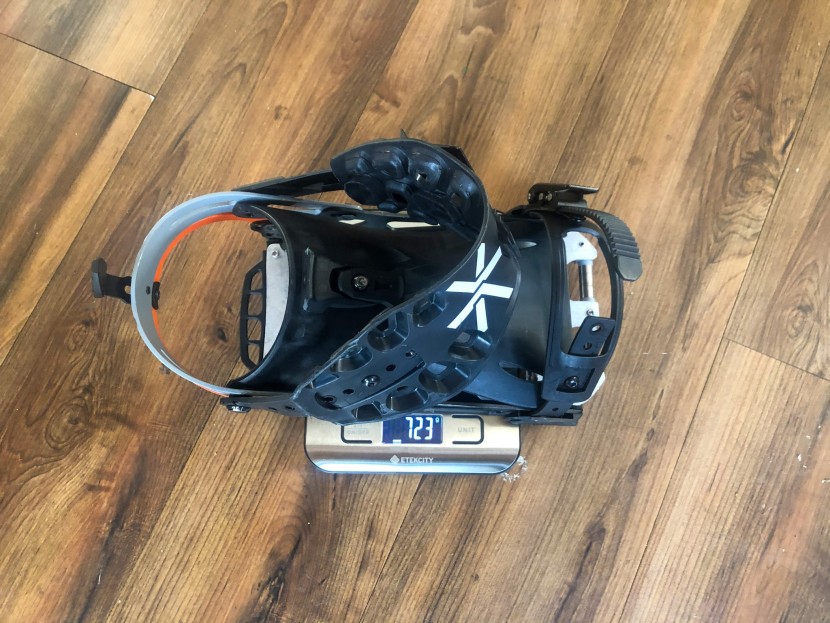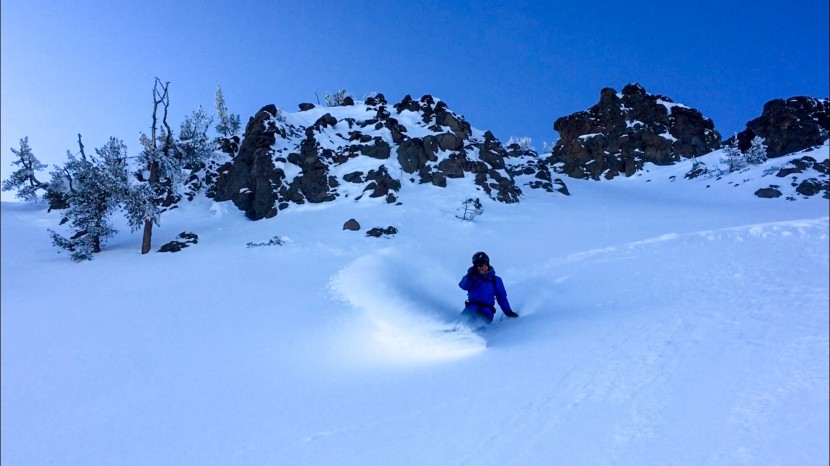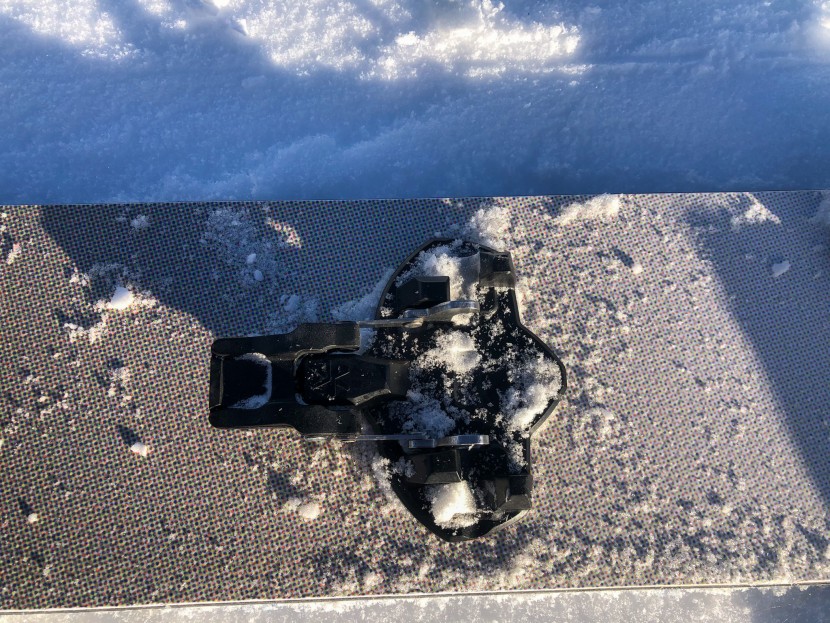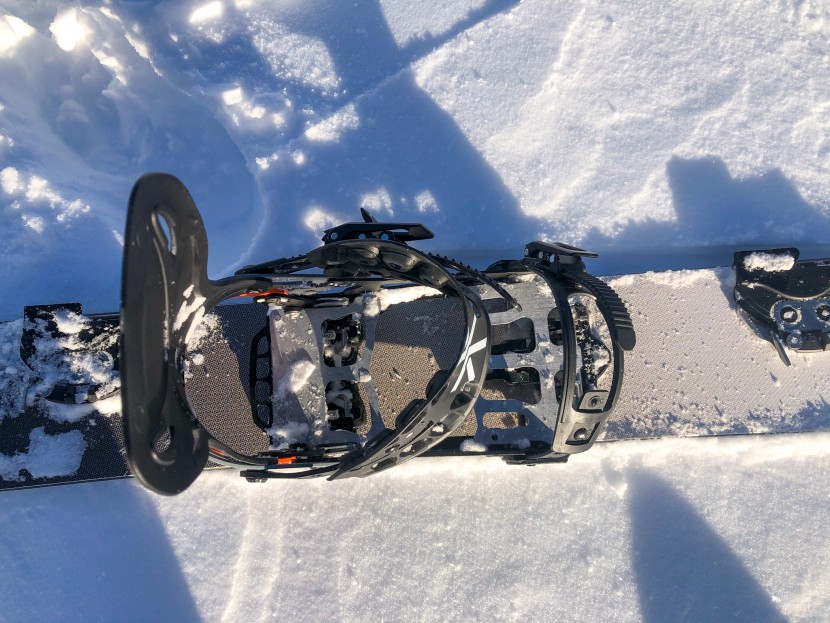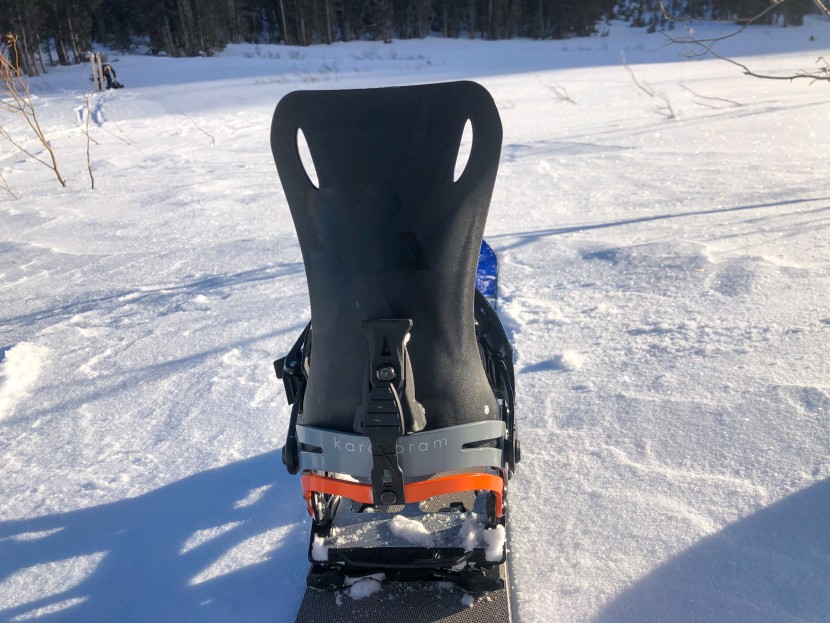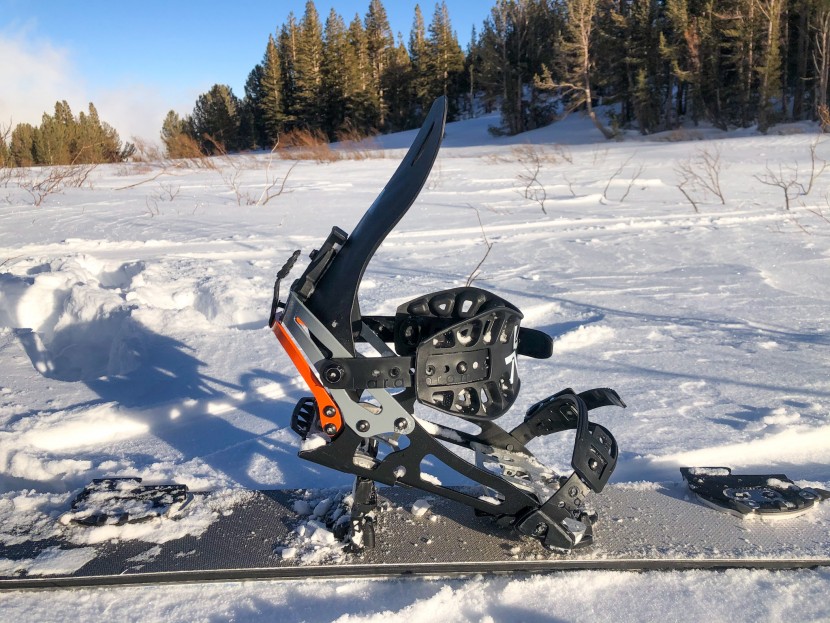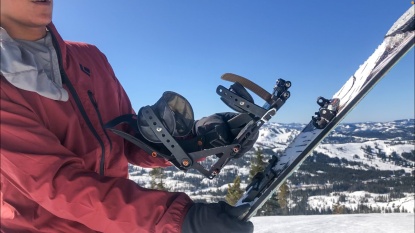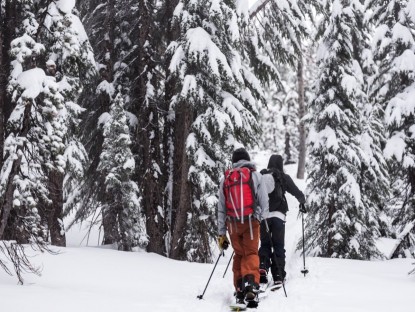Karakoram Prime Nomad Review
Our Verdict
Compare to Similar Products
 This Product
Karakoram Prime Nomad | |||||
|---|---|---|---|---|---|
| Awards | Best Overall Splitboard Binding | Best for Softboot Spiltboard-Mountaineering | Best Bang for the Buck | ||
| Price | $700 List Check Price at REI | $589 List | $629 List $503.20 at Evo | $459 List $459.00 at REI | $325 List |
Overall Score  |
|||||
| Star Rating | |||||
| Bottom Line | Karakoram's entry-level binding is far from entry-level | We consider this the best splitboard binding on the market | This lightweight binding offers excellent performance at a reasonable price | This top-performing model is our top choices and has been for many years | While friendly on the bank account, this binding is also comfortable and user-friendly |
| Rating Categories | Karakoram Prime Nomad | Spark R&D Arc Pro | Spark R&D Surge Pro | Spark R&D Arc | Voile Light Rail |
| Downhill Performance (30%) | |||||
| Transitions (30%) | |||||
| Uphill Performance (20%) | |||||
| Weight (10%) | |||||
| Straps, Lean, Risers (10%) | |||||
| Specifications | Karakoram Prime Nomad | Spark R&D Arc Pro | Spark R&D Surge Pro | Spark R&D Arc | Voile Light Rail |
| Measured Weight (pair) | 3.18 lbs | 2.5 lbs | 2.7 lbs | 2.8 lbs | 3.34 lbs |
| Compatible Systems | Prime Crampons, Ride Mode 2.0 | Spark Pucks, Voile Pucks (Regular or Canted), Burton Channel Pucks, One Binding System, and Ibex Crampons | Spark Pucks, Voile Pucks (Regular or Canted), Burton Channel Pucks, One Binding System, and Ibex Crampons | Spark Pucks, Voile Pucks (Regular or Canted), Burton Channel Pucks, One Binding System, and Ibex Crampons | Voile Pucks, Voile Splitboard Crampons |
Our Analysis and Test Results
Uphill performance
The Karakoram Prime Nomad is a comfortable and efficient uphill binding system. Its stride quality and side-hilling performance make it a good pick for demanding mountain adventures. It's comfortable for all-day mountain objectives despite the standard metal baseplate found on most splitboard bindings. It was comfortable enough that we elected to take this binding on our Japan trip. Here we used it as a splitboard binding and resort binding through the use of their Quiver Connectors system.
The binding has a low friction touring system derived from its active and bearing based touring point; this allows for a high-quality stride step after step, especially compared to a pin-based binding system. The Nomad has a lower sidearm, which resembles a resort snowboard binding. This binding is still very capable of sidehilling. If things get dicey, the Karakorum has a system to increase stability called Flex Lock.
Flex Lock works to reduce the overall flex of your boot to stiffen your boot and binding interface, which then increases sidehilling performance. While this system is effective, it requires an additional purchase, and the same result is achievable through the strategic use of a ski strap. The heel of binding can lock down when it's in tour mode for fixed heel skiing. Our testers appreciated this feature for short and or firm/challenging split ski descents. It takes a small amount of time to utilize this feature in the field, and we found ourselves using it quite often.
Weight
Karakoram bindings are getting lighter every year. The Nomad shaves off 40 grams and features a more responsive high back than its predecessor. It falls on the heavier end of the weight spectrum for the splitboard binding category. It weighs 723 grams per binding. The Ride 2.0 system weighs 839 grams. It's important to look at the entire field weight of the system as that's what we will be carrying up the hill. The field weight of Prime Nomad is five pounds, six ounces. The elevated field weight of the system is explained by the active system, which requires more moving parts and adds to the weight of the system.
Downhill Performance
The Nomad provides a responsive all-mountain styled ride that doesn't neglect some side to side motion for a tweakable and playful feel. It felt very similar to a pair of resort snowboard bindings, and we appreciated the lower sidearm and softer high back, which allowed for weight movement along the board and flex when trying to tweak. This binding performed on the downhill well enough to skip bringing a downhill-specific binding to Japan. Instead, we rode the Nomad every day in on our split and solid boards.
Transitions
Karakoram bindings use an active system for transitions; different components move to secure the binding in place. On the downhill, two pins extend from the back of the binding to secure into the mounting plates. For the uphill, two small hooks come up and over the barrel-shaped bearing at the toe ramp of the binding.
Karakoram has spent time refining the Ride Mode 2.0 to mitigate the issues that the first ride mode system was having. The main issue on the previous ride mode was the metal plates would ice up; this could make the transition longer and more frustrating. The main way we were impacted by ice on the Ride Mode 2.0 was through the build-up of ice on the base plate of the binding or the mounting plates. This can change the binding angle, which raises the height of the pins just enough to inhibit them from seating in the mounting plates.In our testing, the icing issue has improved by a large degree but is not as foolproof as a passive system. We still carry a small tool to get ice off for the few occasions when icing did occur. The active system has some inherent advantages that our testers appreciated as it relates to transitions from tour to ride mode. The active system allows for the bindings to be installed while the board is upright, which is nice in small areas or deep snow. It reduces the amount of space required and increases board security.
Straps, Lean, Risers
At the top tier of products or professions, the details begin to differentiate the good from the great. The straps, lean adjusters, and risers are a key point in differentiation for the Nomad.
StrapsThe Nomad straps are flexible and soft, which allows them to be form-fitting and pressure point free around your instep. They are made of a supple rubber, allowing for all-day comfort. Together this creates one of the most comfortable straps in the category. The buckles are a lighter-weight version of a standard snowboard buckle.
Lean Adjuster
The lean Adjuster on the Nomad is intuitive and consistent. The hourglass-shaped, turn-based adjuster is easy to use without instruction. It has three main modes; more forward lean, less lean, and negative lean. The two ride modes have micro-adjustments to provide more lean within their specific range.
The Nomad provides -8 degrees of lean in touring mode. This is generally the industry standard when it comes to the quantity of negative lean and is about how much most snowboard boots allow to be utilized.
Risers
Amongst our favorite features in the Karakoram system is the heel risers. They are easy to engage and adjust. They can be simply engaged with the basket of your pole and provide more than enough height for touring.
Women's Model
The Prime Nomad is also available in a women's model. The women's model is the exact same product in terms of features. Karakoram has reduced the footprint of the bindings and sized each piece to provide an optimal fit for a women's foot.
Value
Karakoram is notoriously a more expensive option in the splitboard category. For reference, the Nomad is the base model in the lineup and comes at a price higher than most companies' premier offerings. The added cost comes from the complexity and components demanded by the active system. Unless you advocate that the active system provides an advantage in downhill performance, then the value is there. However, other bindings exist on the market that provide comparable to improved performance at a lower cost.
Conclusion
The Karakoram Nomad is a comfortable binding with plenty of response yet also exhibits a playful feel. This binding is a good option for splitboarders looking for an active binding system that requires strong performance on the up and a responsive, playful feel on the descent.


